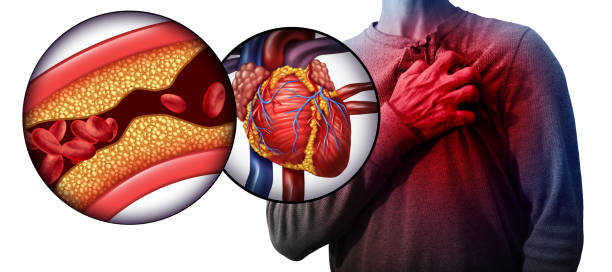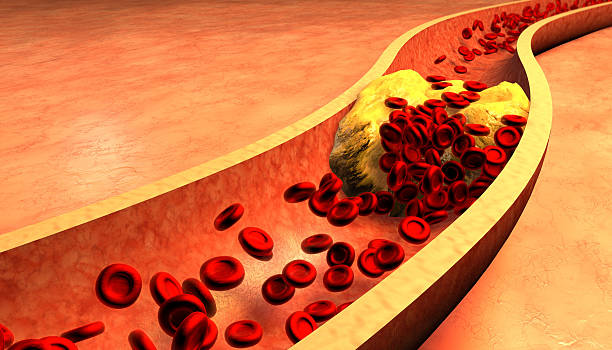The warning signs of clogged arteries are numerous, which is a good thing because clogged arteries can disrupt or even completely cut off blood supply to certain areas of your body. This can be a severe threat to your health, and surprisingly, it is more common than you think, especially among older adults.
Blocked arteries usually result from the buildup of plaques on the artery wall; plaques consist of calcium, fatty substances, cellular waste products, fibrin and cholesterol. This process can occur due to several factors, including diet, lifestyle, genetics and so on.
However, it will be vital for you to learn about the warning signs of clogged arteries because early detection of the condition can go a long way to save your life and give the people around you a chance at healthy living.
Warning Signs of Clogged Arteries
So, now that you know what blocked arteries are, let us go further to see the signs and symptoms you should expect when any of your arteries are blocked. The symptoms you will notice depend on the part of your body that has a reduced oxygen supply due to clogged arteries.

Some common symptoms include:
1. Chest Pain:
Chest pain occurs when the arteries that supply blood to the heart become narrow, and the heart does not get enough blood, especially during strenuous activities such as exercising.
2. Fatigue:
When the heart cannot get enough blood to the parts of the body that need it the most due to clogged arteries, it can make you feel weak and extremely tired because your body won’t get what it requires to function well, such as glucose for energy.
3. Cold Hands or Feet:
Clogged arteries can stop blood flow to the hands and feet, making them feel cold since the blood provides warmth.
4. Dizziness:
If oxygen-rich blood doesn’t flow properly to the brain due to clogged arteries, it will make you feel dizzy or lightheaded.
5. Lower Back Pain:
The arteries leading to the lower back are among the first to build plaque, and the pressure from the arteries can cause the affected area to bulge beyond the normal size of the blood vessel. This can result in lower back pain.
6. Shortness of Breath:
Blood supplies oxygen around the body, and if clogged arteries restrict blood flow, there will not be a proper flow of oxygen in the body.
7. Hair Loss:
For hair to grow in any area of the body, there must be a proper blood supply. If there is an obstruction to blood flow, it can lead to hair loss and stunted growth.

8. Pain or Numbness in Your Hands, Legs or Feet:
Poor circulation of blood can cause numbness and tingling in your arms, hands, legs and feet, as there will be a loss of function, and this can lead to the death of the tissues in these areas of the body.
9. Decreased or Absent Pulses, Especially in the Feet:
Clogged arteries also cause reduced or absent pulses in the affected area due to low or no supply of blood to the area.
10. Discolouration of the Skin in the Affected Area:
With decreased or disrupted blood flow to any body area, the skin becomes inflamed, and it can also lead to other skin problems if left untreated.
11. Sores or Ulcers That Won’t Heal:
For tissue repair to occur, there has to be a good supply of blood, oxygen and nutrients; when the blood supply is cut off, it can make it hard for the sores or ulcers to heal and can even lead to the death of the tissue.

In some cases, a blocked artery can cause more severe symptoms and may require emergency medical attention; some of the symptoms include:
12. Sudden Pain in the Arm or Leg:
Pain in the arms and legs due to reduced blood flow; it can be worse when you walk long distances or carry out strenuous exercises.
13. Sweating:
You will also tend to sweat more when your arteries are narrowed or blocked because it will take more effort for your heart to pump blood, so to control your temperature, your body sweats more.
14. Difficulty Speaking or Swallowing:
If the clogged artery causes a low supply of blood to the parts of the brain that control speech and other functions of the mouth, it will become difficult to speak or swallow food.
15. Loss of Consciousness:
Inadequate blood supply to the brain can cause several health issues. If it becomes worse, it can result in loss of consciousness or fainting.
16. Vision Changes:
Plaque buildup and clogged arteries can also restrict blood supply to the eyes and cause adverse vision changes, like eye pain and problems with seeing.

17. Sudden Confusion or Mental Changes:
This is also a result of lack of blood supply to the brain. If any arteries supplying blood to the brain get clogged, it can result in mental changes and confusion.
18. Weakness, Especially on One Side of the Body:
It is common for blood supply to be disrupted on one side of the body if any major artery is clogged; in this case, you will experience weakness in the affected area.
See also: Best Food For Diarrhea
Conclusion
If you suspect that you have clogged arteries based on the symptoms we have discussed so far, seek medical attention immediately; clogged arteries are significantly dangerous if they have worsened before showing symptoms. So do not waste time; get the help you need immediately and ensure you get an accurate diagnosis before you get treated so you will be sure you truly need the treatment for clogged arteries.



